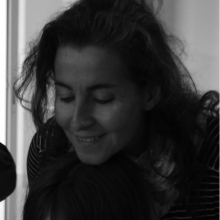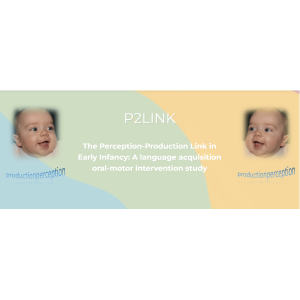LabFon - Laboratório de Fonética e Fonologia

The Phonetics and Phonology Lab (LabFon - Laboratório de Fonética e Fonologia) is a research group that was founded in the 1960s in the Faculty of Letters of the University of Lisbon. In 2005-2006 the group became a part of Onset (Center for Language Studies, FLUL) and in 2007 the group has joined the Center of Linguistics of the University of Lisbon. In line with the past history of the Lab, nowadays LabFon pursues its activities with three aims: (1) research (especially laboratory-phonology oriented), (2) education/training (at the undergraduate and graduate levels), and (3) services to the community.
In the last three years, two main lines of research have been developed: the study of frequency patterns in the phonology and phonetics of the language, and the study of the production and perception of prosody (prosodic phrasing, intonation, and rhythm).
Knowledge of frequency patterns has been shown to be crucial to the characterization of language usage, the establishing of lexical representations, or the emergence and development of grammar. Available frequency data for phonological units and patterns in Portuguese was scarce, non-replicable and corpus dependent. The line of research initiated in 2007 aimed at providing large-scale frequency information for phonological units and patterns from the feature to the prosodic word level, together with tools and databases, that allowed a description of Portuguese from the frequency perspective and enabled to test hypothesis about frequency effects in adult and child grammar, as well as language processing.
European Portuguese is one of the languages which is particularly interesting to the study of prosody and of the perception and production of prosodic properties. This is due to the fact that (i) European Portuguese is different from other Romance languages in terms of the properties it displays in various prosodic levels, such as the Prosodic Word or the Phonological Phrase, (ii) its intonation stands out from the rest of the Romance languages due to the scarcity of pitch accents and its overall prosodic phrasing, and (iii) it has a rare combination of syllabic and accentual rhythmic properties, within Romance. The presence of both Romance and Germanic-like properties in the prosody of the language raises challenging questions for language acquisition (under the prosodic bootstrapping hypothesis) and for language typology. The research developed at LabFon aims at tackling some of these questions in the broader context of cross-linguistic research, focusing on prosodic variation, the acquisition of prosody and the role of prosody in language development and language processing. To this end, the group set up in 2010 the Lisbon Baby Lab.
Membros
Investigadores integrados com doutoramento
Investigadores integrados sem doutoramento
Colaboradores
Concluídos
| Projeto | Data | Fin. |
|---|---|---|
| Horizon 21 - Horizon 21: Early language development in Down Syndrome | - | FCT
|
| EBELa - EBELa - Eyes and Brain: Early markers of Language Development | - | FCT
|
| InAPoP - InAPoP - Interactive Atlas of Prosody of Portuguese | - | FCT
|
| DEPE - DEPE - Development of Prosodic Structure and Intonation | - | FCT
|
| FreP - Frequency patterns of Phonological Objects in Portuguese: Research and Applications | - | FCT
|
| IntPhraRo - Intonational Phrasing in Romance |
| Recursos | Tipo |
|---|---|
| A lexicon of Child Directed Speech for European Portuguese from the FrePoP database - CDS_EP | Léxico |
| CDI-PE App: Aplicação online para avaliação de competências de linguagem e seu desenvolvimento - CDI-PE App | Ferramenta |
| Checklist Quantitativa para Autismo em Crianças Pequenas - Q-CHAT-10 | Ferramenta |
| Interactive Atlas of the Prosody of Portuguese Webplatform - InAPoP | Atlas |
| LumaLiDaOnLexicon | Léxico |
| MacArthur Bates CDI para o Português Europeu - Formas reduzidas | Base de dados |
| Questionário do bebé para o Português Europeu - CSBS DP | Ferramenta |
| Questionário para o Primeiro Ano de Vida - FYI | Base de dados |
| Romance Languages Database: Online database for intonational phrasing in Romance - RLD | Base de dados |
| Tools for the Transcription of Portuguese Prosody - P-ToBI | Ferramenta |
| Um léxico infantil para o Português Europeu - PLEX5 | Léxico |
. (2017). Horizonte 21 – Novas linhas de investigação em Trissomia 21. Descubra As Diferenças (Electronic Journal), 21. |
. (2014). Atypical Prosody in Asperger Syndrome: Perceptual and Acoustic Measurements. Journal Of Autism And Developmental Disorders, Springer Us. Issn:, 0162-3257. |
. (2014). Infants Perception of Intonation: Is It a Statement or a Question?. Infancy 19. |
. (2013). Prosody Matters. Essays In Honor Of Elisabeth Selkirk. |
. (2013). Report: The 2nd Workshop on the Development of Prosody and Intonation. Iascl- Child Language Bulletin, 33. |
. (2012). The phonology of rhythm from Classical to Modern Portuguese. Journal Of Historical Linguistics 2. |
. (2010). Where do illusory vowels come from? Journal of Memory and Language 64 (3): 199-210. . |
. (2006). Grammar and frequency effects in the acquisition of prosodic words in European Portuguese. Language And Speech, Special Issue Crosslinguistic Perspectives On The Development Of Prosodic Words, 49(2), 175-204. |
. (2005). Subjects, objects and intonational phrasing in Spanish and Portuguese. Studia Linguistica 59. |
. (2003). The phonological status of initial peaks in European Portuguese. Catalan Journal Of Linguistics, 2, 133-152. |
. (2002). Nuclear falls and rises in European Portuguese: a phonological analysis of declarative and question intonation. Probus, (Special Issue On Intonation In Romance, 14. |
. (2002). Review of Intonation, word order, and focus projection in Serbo-Croatian. De Svetlana Godjevac. Glot International, 6. |
. (2001). Prosody and Focus in European Portuguese - a Summary by the Author. Glot International 5. |
. (2001). On the correlates of rhythmic distinctions: the European/Brazilian Portuguese case. Probus, 13, 247-273. |
. (2014). A Fonética Forense na produção de prova no ordenamento jurídico português. Revista Virtual De Estudos Da Linguagem - Revel 12, 23, edição temática de Linguística Forense(70). |
. (2003). The intonation of Standard and Northern European Portuguese. Journal Of Portuguese Linguistics, Special Issue On Portuguese Phonology, 2. |
. (2002). Prosodic word deletion in coordinate structures. Journal Of Portuguese Linguistics 1. |
. (2017). Emergência de sândi consonântico em Português Europeu: uma abordagem prosódica. Revista Da Associação Portuguesa De Linguística, 3, 177-190. |
. (2017). Perturbação do Desenvolvimento Intelectual / Incapacidade Intelectual: Experiência de um Centro de Neurodesenvolvimento de um Hospital de Nível III. Acta Pediátrica Portuguesa 2017, 48, 304-11. |
. (2017). O ritmo da interlíngua na produção do Português Europeu por falantes chineses. Revista Da Associação Portuguesa De Linguística, 3, 423-435. |
. (2020). Eyes or mouth? Exploring eye gaze patterns and their relation with early stress perception in European Portuguese. Journal Of Portuguese Linguistics, 19(1), 4. http://doi.org/10.5334/jpl.240 |
. (2019). The Sense of Sounds: Brain Responses to Phonotactic Frequency, Phonological Grammar and Lexical Meaning. Frontiers In Psychology, 10. http://doi.org/10.3389/fpsyg.2019.00681 |
. (2021). Early Visual Attention Abilities and Audiovisual Speech Processing in 5–7 Month-Old Down Syndrome and Typically Developing Infants. Brain Sciences 11, 7:939. http://doi.org/https://doi.org/10.3390/brainsci11070939 |
. (2020). European Portuguese-Learning Infants Look Longer at Iambic Stress: New Data on Language Specificity in Early Stress Perception. Frontiers In Psychology, 11:1890. http://doi.org/10.3389/fpsyg.2020.01890 |
. (2019). Associação de eventos tonais em português de São Tomé. Diacrítica, 33(2), 19-40. http://doi.org/10.21814/diacritica.376 |
. (2019). Executive functions and pragmatics in children with high-functioning autism. Reading And Writing, 33(4), 859-875. http://doi.org/10.1007/s11145-019-09975-2 |
. (2019). /l/ velarisation as a continuum. Plos One, 14(3). http://doi.org/10.1371/journal.pone.0213392 |
. (2018). Executive Functions and Prosodic Abilities in Children With High-Functioning Autism. Frontiers In Psychology, 9. http://doi.org/10.3389/fpsyg.2018.00359 |
. (2018). Atypical preference for infant-directed speech as an early marker of autism spectrum disorders? A literature review and directions for further research. Clinical Linguistics & Phonetics, 32 (3), 213-231 . |
. (2018). Revisiting Stress “Deafness” in European Portuguese – A Behavioral and ERP Study. Frontiers In Psychology, 9. http://doi.org/10.3389/fpsyg.2018.02486 |



























